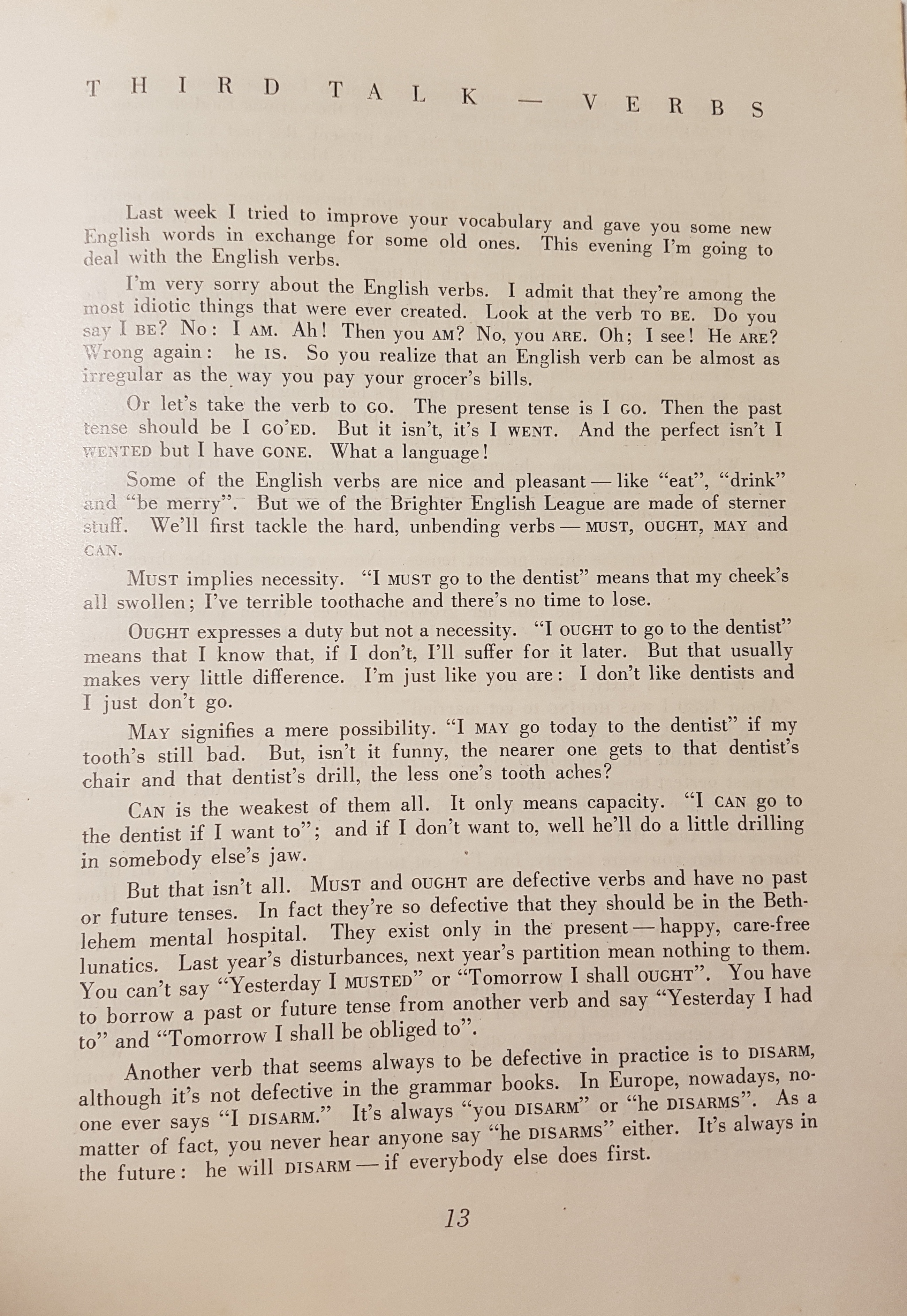|
Let's Speak English
| Contents | Previous Page | Next Page | - Page 13 -
THIRD TALK - VERBSLast week ! tried to improve your vocabulary and gave you some new English words in exchange for some old ones. This evening I'm going to deal with the English verbs. I'm very sorry about the English verbs. I admit that they're among the most idiotic things that were ever created. Look at the verb TO BE. Do you say I BE? No: I AM. Ah! Then you AM? No, you ARE. Oh; I see! He ARE? Wrong again: he IS. So you realize that an English verb can be almost as irregular as the way you pay your grocer's bills.Or let's take the verb to GO. The present tense is I GO. Then the past tense should be I go'ed, But it isn't, it's I WENT. And the perfect isn't I WENTED but I have GONE. What a language! Some of the English verbs are nice and pleasant - like "eat", "drink" and "be merry"," But we of the Brighter English League are made of sterner stuff. We'll first tackle the hard, unbending verbs - MUST, OUGHT, MAY and CAN. Must implies necessity. "I MUST go to the dentist" means that my cheek's all swollen; I've terrible toothache and there's no time to lose. OUGHT expresses a duty but not a necessity. "I OUGHT to go to the dentist" means that I know that, if I don't, I'll suffer for it later. But that usually makes very little difference. I'm just like you are: I don't like dentists and I just don't go. MAY signifies a mere possibility. "I MAY go today to the dentist" if my tooth's still bad. But, isn't it funny, the nearer one gets to that dentist's chair and that dentist's drill, the less one's tooth aches? CAN is the weakest of them all. It only means capacity. "I CAN go to the dentist if I want to"; and if I don't want to, well he'll do a little drilling in somebody else's jaw. But that isn't all. Must and OUGHT are defective verbs and have no past or future tenses. In fact they're so defective that they should be in the Bethlehem mental hospital. They exist only in the present - happy, care-free lunatics. Last year's disturbances, next year's partition mean nothing to them. You can't say "Yesterday I MUSTED" or "Tomorrow I shall OUGHT". You have to borrow a past or future tense from another verb and say "Yesterday I had to" and "Tomorrow I shall be obliged to". Another verb that seems always to be defective in practice is to DISARM, although it's not defective in the grammar books. In Europe, nowadays, no-one ever says "I DISARM." Its a ways you DISARM or he DISARMS" As a matter of fact, you never hear anyone say "he DISARMS". either. It's always in the future : he will DISARM - if everybody else does first. 13 |

|
|
| Contents | Previous Page | Next Page |